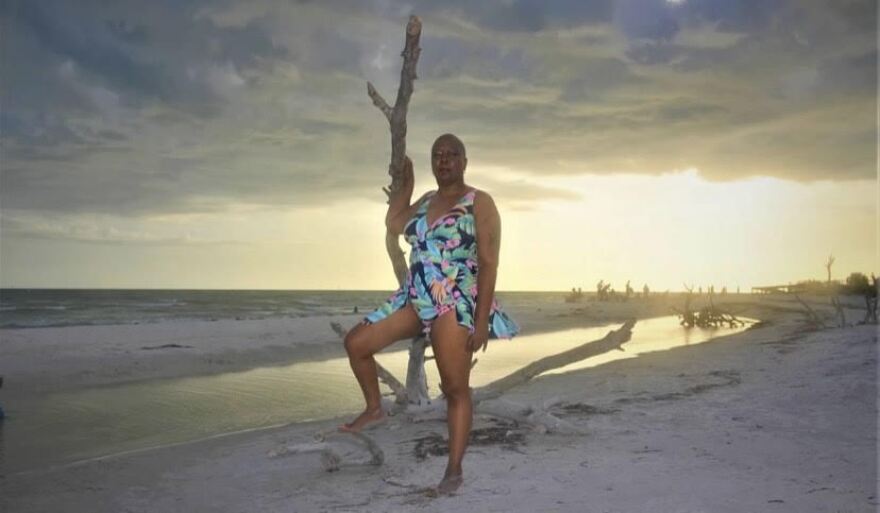WUSF is reporting on climate change and we asked residents to tell us how they have been impacted. We’re sharing those stories in an occasional series.
WUSF's Jessica Meszaros spoke with Sonja Brookins of the Seminole Heights neighborhood in Tampa about an issue that's important to her: environmental injustice.
A Hillsborough resident who experienced climate change had questions. Hear a climatologist's answers
Floridians And Climate Change: 'Environmental Justice ... Turns People Off. They Don't Want To Face The Facts'
On Climate Change, These Floridians Say 'We Have A Lot Of Work To Do'
Floridians And Climate Change: 'I Have Noticed A Big Difference'
How have you personally experienced climate change?
What I've noticed as I grew up as a child, and I can give you a story about my grandmother: one day I came home and the infrastructure had failed in front of her house. Someone had went and used the restroom and all the feces dumped out in her front yard. That was an experience for me. And it made me realize the impact that occurs in marginalized communities. Even though we were kind of middle class, we were still experiencing the effects or the impact of different things like the soil that had happened.
So, it brought my awareness to climate change, and I started looking at the urban islands that we experienced here in Florida, especially now with the humidity that's going on. I started paying more attention to the sea level rise, and the interstate that's right there in our neighborhoods. You know, all of these things are a problematic for those communities in it, and that's climate change. And a lot of folks don't realize that environmental justice and climate change, they all impact each other. It's a domino effect.
How would you describe what an urban island is?
Well, I want to go with an "urban heat island." The closer we are to downtown and closer we are to the center, the temperature difference is four degrees higher. So, this is what we call urban islands, as well as the urban heat. We're impacted because we don't have the trees in those areas. We don't have a healthy soil so we can have a community garden. So, all of these things come into play.
In the climate change form, you mentioned that health is a big is a big issue for you in terms of climate change and health. And so, can you talk a little bit about that?
Yes, it has been well documented that asthma and respiratory illnesses affect our communities in the Black and brown communities. And it's because we don't have the trees there to help filter with the oxygen and the carbon dioxide. You know, let's be honest about it. We hate to say words like gentrification and redlining, but all those are our environmental justice issues. And that it does impact our health. You know, there are so many situations all across Florida, where the health has been impacted. We have more people dying of cancer.
We have babies that are born with a low birth rate. These are all health impacts, whether we want to admit it or not. And sometimes when you mention environmental justice, it kind of turns people off. They don't want to face the facts and I always say we have to go back to the basics and see what's going on with our children with the asthma influx. And let's not forget the infrastructure of the pipes that's running under these houses because it hasn't been changed in God knows how long and we're drinking this toxic water, and it's killing us.
What could have been done by the government to help prevent that, do you think? Or what could have been done to prevent that, in general?
First of all, the planning and the zoning could have been done differently. We know that these things were done with the intent of giving the marginalized community a lesser opportunity, or, let's say, a not-so-pleasant opportunity to have nice things like we do in the other neighborhoods. Money is a big part here. We understand that if we don't have the money or the resources, then we have to get what we can get. So that's something that I think the planning and the redistricting, it was done to benefit the government. It wasn't done to benefit the community. I think how we change that is we have to put representation on these planning committees and these zoning committees, so that we know what's going on, and how it's going to impact our community in the end.
You can share your climate change story with us by filling out the Google form below:






